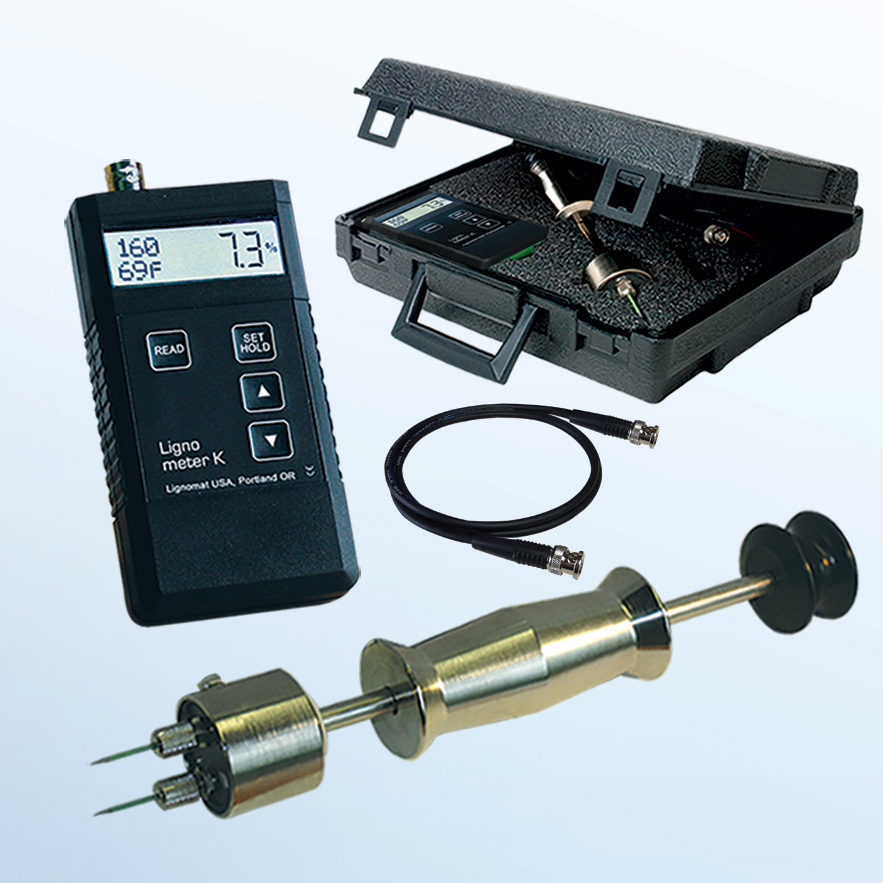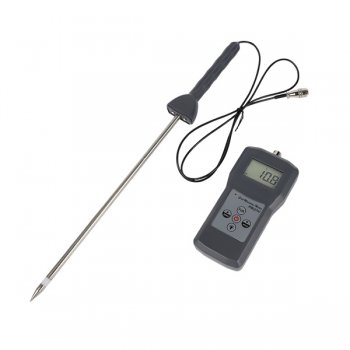Exactly how to Utilize a Moisture Meter to Find Surprise Water Damages in Your Building
Exactly how to Utilize a Moisture Meter to Find Surprise Water Damages in Your Building
Blog Article
The Ultimate Overview to Wetness Meters: A Comprehensive Summary and How They Can Save You Money
Moisture meters serve as important tools in spotting and monitoring moisture content in materials, assisting in preventing expensive damages and guaranteeing the top quality of products. Understanding the nuances of various kinds of dampness meters, their applications, and the prospective cost-saving benefits they use can be a game-changer for specialists and organizations alike.
Kinds Of Dampness Meters
One common kind is the pin-type wetness meter, which determines the electric resistance between 2 pins placed into a material. Pinless dampness meters, on the other hand, use electromagnetic sensor plates to check a bigger area without causing damage to the material's surface area.

Moreover, there are also specialized moisture meters created for specific products like soil, grain, or hay. These meters offer precise moisture readings customized to the one-of-a-kind buildings of the material being checked. Infrared wetness meters measure the thermal residential properties of a material to identify its moisture material non-invasively, making them valuable for applications where pin or pinless meters may not be ideal. Recognizing the various sorts of moisture meters offered can help markets choose one of the most appropriate device for their certain dampness measurement requirements.

Benefits of Utilizing Dampness Meters
Wetness meters supply invaluable benefits in precisely examining and checking moisture levels in varied materials and settings (Moisture Meter). One of the primary advantages of making use of wetness meters is the avoidance of possible damage brought on by excess moisture. By identifying and attending to high dampness levels early on, wetness meters assist to avoid mold growth, rot, and architectural damages in structures, saving both time and money on repairs. Furthermore, moisture meters help in ensuring the quality of products during building or production processes. By accurately gauging moisture web content, these devices help preserve the stability of wood, drywall, concrete, and other products, reducing the risk of failings or problems.
Furthermore, making use of wetness meters can lead to boosted power efficiency. In farming setups, wetness meters play a crucial function in enhancing plant returns by making it possible for farmers to monitor dirt wetness degrees and make educated irrigation decisions.
How to Pick the Right Moisture Meter
Selecting the proper wetness meter involves taking into consideration essential aspects such as product compatibility, measurement range, and calibration precision. When picking a dampness meter, it's necessary to make sure that the meter appropriates click over here now for the certain product you will certainly be testing. Different materials have varying electric residential or commercial properties that can affect moisture analyses, so choosing a meter developed for your product is crucial for exact results. Additionally, take into consideration the measurement variety of the dampness meter. Make sure that the meter can find dampness levels within the range needed for your applications. Calibration accuracy is another essential element this link to remember. Select a moisture meter with reputable calibration to make certain accurate and consistent analyses. Some meters may require regular calibration changes, so recognizing the calibration procedure is very important. By meticulously assessing these elements, you can select a dampness meter that meets your demands and offers precise wetness measurements for your jobs.
Proper Strategies for Moisture Meter Use

Expense Financial Savings Via Moisture Meter Applications
How can the tactical application of wetness meters lead to considerable cost savings throughout numerous industries? In the agriculture industry, moisture meters help in determining the optimum time for harvesting crops, preventing excess or over-drying dampness that can influence the final product's high quality.
In a similar way, in building, wetness meters aid avoid expensive problems by discovering dampness degrees in structure products, such as timber or concrete, which can lead to architectural issues otherwise dealt with promptly. By determining trouble areas at an early stage, specialists can take restorative measures to prevent extensive repair Home Page work or substitutes, inevitably conserving money and time.
Furthermore, in the food processing sector, dampness meters are important for checking item quality and making sure conformity with safety and security laws. By accurately determining dampness web content in food products, makers can avoid wasting, keep quality, and minimize waste, leading to substantial price financial savings. Overall, the tactical application of moisture meters is a useful financial investment that can result in considerable expense decreases and enhanced effectiveness across different markets.
Final Thought
In final thought, wetness meters are valuable devices for identifying and measuring wetness levels in various products. By using the right dampness meter and complying with proper strategies, users can effectively avoid pricey damages caused by excess dampness.
Wetness meters offer as vital tools in identifying and keeping track of moisture content in materials, assisting in avoiding pricey damages and making sure the quality of products. Infrared moisture meters gauge the thermal properties of a material to establish its moisture material non-invasively, making them beneficial for applications where pin or pinless meters might not be suitable.Wetness meters provide very useful advantages in precisely keeping an eye on and evaluating wetness degrees in diverse products and atmospheres. In agricultural settings, dampness meters play a critical function in maximizing plant yields by enabling farmers to keep an eye on dirt dampness degrees and make educated watering choices.In conclusion, moisture meters are important tools for measuring and discovering wetness degrees in different materials.
Report this page